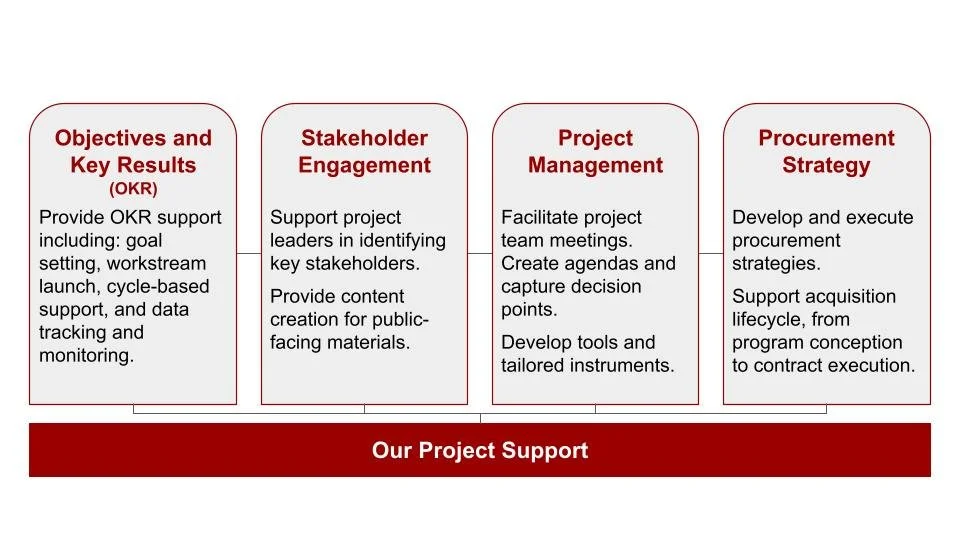Competency Restoration Project Management,Strategic Support, and Procurement Strategy
Ikaso partnered with a state agency to decrease the wait time for competency restoration services for adults deemed incompetent to stand trial (ICST) and in need of care in state psychiatric hospitals from 4+ months to 4 weeks.
The Challenge
Accelerated by COVID-19 and a staffing crisis at the state’s psychiatric hospital network, wait times for individuals in need of competency restoration services drastically increased.
The Outcome
We leveraged the Objectives and Key Result (OKR) goal-setting framework to develop a collaborative project structure, across divisions, centered on ambitious data-informed goals and a series of focused workstreams. Some workstreams focused on goals in the hospital setting, some focused on legislative hurdles, while others established alternative restoration settings – but all shared the same goal: reducing the wait time for competency restoration services. Within the first year, the team exceeded the project objective and other key performance indicators, lowering the average wait time below the 4 week goal – a goal many dismissed as impossible. We further supported our client in updating project goals to focus on sustaining progress, while also setting new challenging targets across key result areas.
To further drive progress, the Ikaso team partnered with the state to support the end-to-end procurement of licensed in-patient psychiatric hospitals to bolster the state’s capacity to provide competency restoration services to justice-involved individuals determined incompetent to stand trial - outside of the state psychiatric hospital setting. Through a strategic procurement approach, we helped revise compensation structures and care requirements to better align with and prioritize program outcomes.
Values-Centered Approach
While employing the values of collaboration and excellence, the Ikaso team supported the creation of a strong project culture among all team members with dedicated leadership support that encouraged innovative, metric-driven solutions.
Highlighted Results
Project leaders reported a 77% reduction in competency restoration service wait time on average during project duration and attributed the project goal-setting and structure as a critical factor to success
Convened two competency restoration symposiums bringing together judges, prosecutors, defense attorneys, and clinicians to foster cross-disciplinary collaboration and knowledge sharing
Supported 6 unique workstreams through 8 quarterly OKR cycles
Facilitated the procurement and re-procurement of cost saving alternative restoration pathways, resulting in $19.8M+ saved for our client and reduced overall wait time for competency restoration services
Conducted outreach and engaged stakeholders to advocate for statutory changes, culminating in the passing of legislation supporting process standardization and improvement
Hosted human centered design workshop, resulting in development of person-centered journey map that has been used to engage hundreds of stakeholders to explain a misunderstood and complex process

